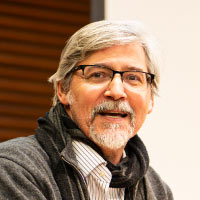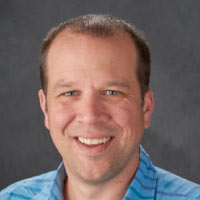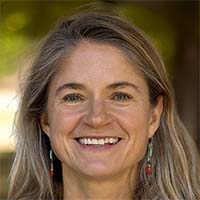In early February 2024, University of Wisconsin–Madison Chancellor Jennifer L. Mnookin announced a new cross-campus initiative focused on environmental sustainability, centered on five goals. Now, in keeping with those goals, the university has launched the Sustainability Research Hub, a new service to campus that will make the university a preeminent destination for sustainability research and education.
The Hub, which is jointly administered by the Nelson Institute for Environmental Studies and the Office of Sustainability, aims to bring significant interdisciplinary sustainability research funding to campus by connecting researchers across departments and targeting major federal research grants.

“The breadth and depth of sustainability research on this campus — from engineering to agronomy, and from history and art to chemistry and geosciences — is remarkable,” says Paul Robbins, dean of the Nelson Institute. “But the challenges of coordinating all this talent, the effort required to produce the synergies needed to be competitive, and the expertise to turn all that talent into major, highly competitive, multi-million-dollar grants: those are things that the Hub can address.”
Matt Ginder-Vogel, the associate director of Sustainability Research and Innovation who will lead the Hub, notes that its services aim to alleviate financial and administrative barriers to collaboration and coordination: “We believe the Hub will appeal to a wide range of researchers, from those accustomed to writing major grants to those who are emerging in their fields.”

By facilitating innovative research through major federally funded grants, the Hub will create opportunities for undergraduate and graduate student research in sustainability, with the goal of supporting the next generation of researchers. The Hub also seeks to facilitate research that promotes collaboration with facilities staff and advances the student experience at UW–Madison.
“As Wisconsin’s flagship institution and one of the top research universities in the world, we have a responsibility to serve as leaders in sustainability and demonstrate our commitment as environmental stewards,” Mnookin says. “With the launch of the Sustainability Research Hub, we are building on our strong foundation in sustainability research and education by leveraging the talents of our faculty, staff and students to do even more.”
UW–Madison has produced substantial sustainability-related research in recent years, including nearly 1,200 grants supporting $130M in research and development expenditures during fiscal year 2022. The Hub seeks to catalyze a significant expansion in this research at a time when sustainability insights and solutions are in high demand across many sectors, from governments to corporations.
“By investing in administrative human talent–grant writers, matchmakers, project and award coordinators, we are empowering scholarly talent and leveraging it to do something far bigger than we are achieving today,” says Robbins. “This is about making a big leap.”

Holly Gibbs, a geographer with the Center for Sustainability and the Global Environment, says the Hub will bring together new teams of researchers and “accelerate our capacity to get the funding needed to implement our ideas.”
Gibbs leads a team of more than 25 scientists, students, and staff analysts that studies tropical deforestation in the Brazilian Amazon and solutions for sustainable supply chains, with research that has informed government, NGO, and company policies.
“The Hub will power the types of transformative collaboration that are easy to dream about but hard to put into action,” Gibbs says. “It will allow us to leave the space where we have grown comfortable and provide the support to take more risks, join more campus-wide research teams, and dig deeper to find the solutions needed by our planet.”
Sign up for sustainability-related updates or reach out with projects via the new Sustainability Research Hub website.